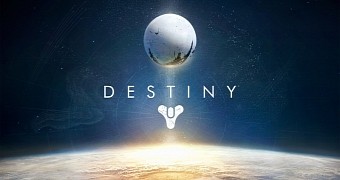Destiny seemed to be the perfect storm ahead of its release, as it was apparently doing everything right. It was being made by one of the most prestigious studios in the industry in terms of first-person shooters – Bungie. It was also being published by one of the most powerful companies in the industry – Activision.
It already had alpha and beta tests to ensure that its servers would handle the influx of users, as well as to make sure that people had already tried out the game and could propagate its quality through word of mouth to others.
However, when the game actually appeared on September 9, while sales were good, they weren't as big as no doubt both Bungie and Activision were hoping for.
Destiny was the game with the mythical 500 million USD (388 million EUR) budget. It ended up selling around 325 million USD (245 million EUR) worth of copies in its first few days. Destiny was the game made by the shooter experts at Bungie who had already made the blockbuster Halo series, acclaimed both in terms of sales and critical reception. Destiny is now at around 77 to 78 out of 100 on the Metacritic website.
The story and gameplay don't use each other well
After running the review earlier this month, I started thinking about the causes of this lackluster presentation, and it mostly boils down to the fact that, when viewed from a distance, the story and the gameplay don't end up supporting each another.
It's like Bungie was divided into two separate teams, one forging the tight first-person shooter gameplay, and the other developing a hard sci-fi plot that, unfortunately, can barely keep players interested in its actual events.
In theory, Destiny's story sounds epic – you are a Guardian tasked with defending the last safe city on Earth, which is protected by a mythical being called the Traveler. In practice, you just roam around planets, listening and acting as a bodyguard to a drone voiced by Peter Dinklage. The end result is that you couldn't care less about what's going to happen next, as it mostly involves shooting waves of enemies in a different location.
Bungie has the skills
Bungie has story-telling skills. It proved that with Halo, and even Destiny has a rich plot, although you actually have to go outside the game and onto the official website to view your unlocked Grimoire cards, which tell much bigger stories. Why the cards aren't inside the game is mind boggling, as it could have allowed players to learn more about the things that sparked their interest. They could have been relayed during the lengthy loading screens, to make the wait more bearable.
Bungie has shooter design skills. It also proved that with Halo, and Destiny is certainly a great feeling shooter, with varied guns and powerful abilities that make players feel power.
However, when the two come together to form the whole Destiny package, many things end up feeling lackluster.
Fortunately, the booming soundtrack serves to make the repetitive missions more bearable, and the fun co-op moments serve to make the story easier to digest.
Looking towards the future, Bungie needs to take better care of its story and how it's delivered to players, and of its missions design, to ensure that they are having fun.

 14 DAY TRIAL //
14 DAY TRIAL //